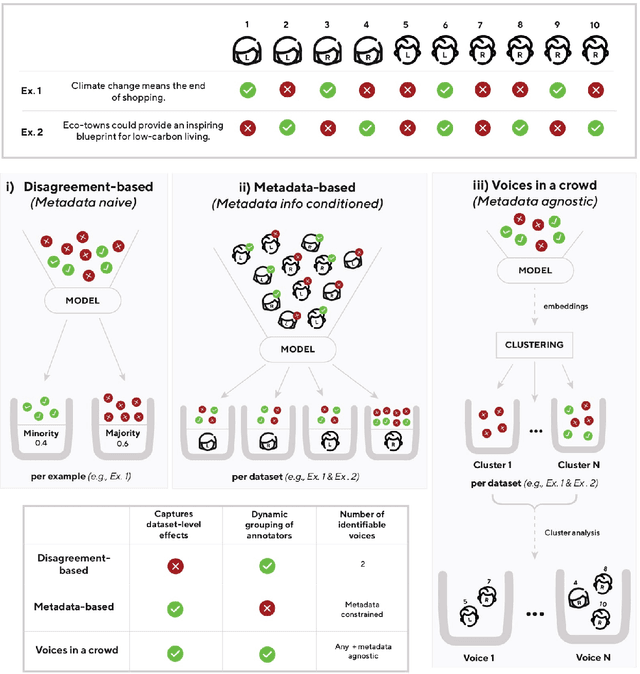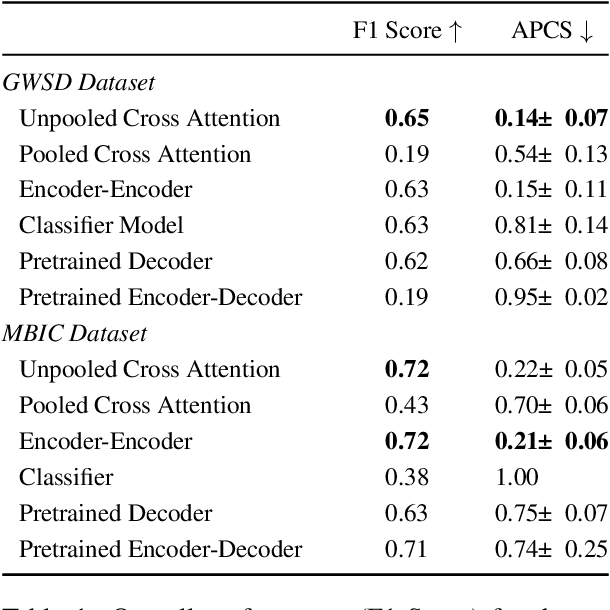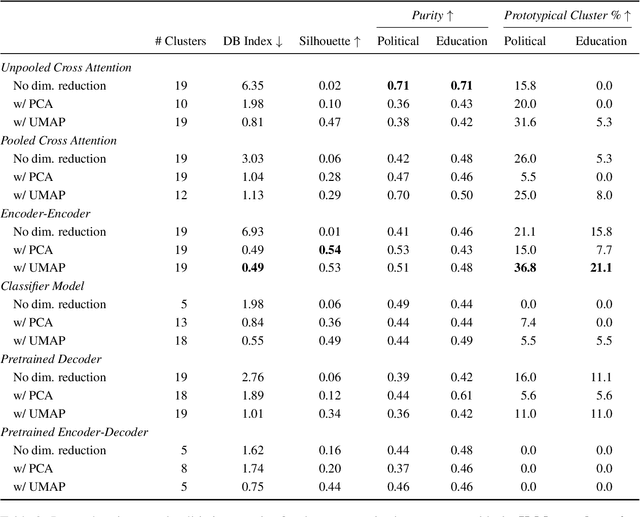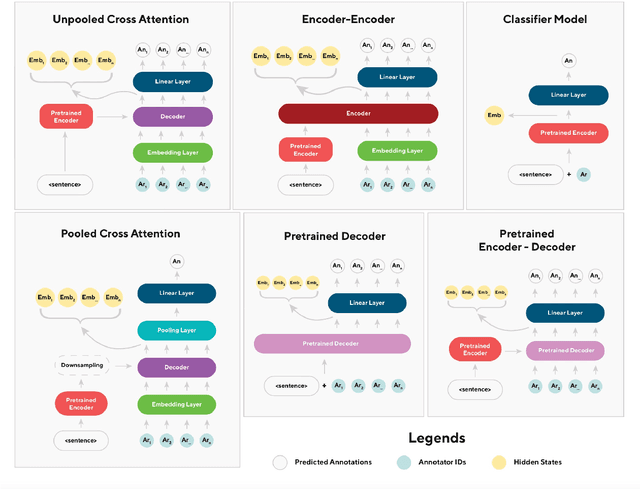Voices in a Crowd: Searching for Clusters of Unique Perspectives
Paper and Code
Jul 19, 2024



Language models have been shown to reproduce underlying biases existing in their training data, which is the majority perspective by default. Proposed solutions aim to capture minority perspectives by either modelling annotator disagreements or grouping annotators based on shared metadata, both of which face significant challenges. We propose a framework that trains models without encoding annotator metadata, extracts latent embeddings informed by annotator behaviour, and creates clusters of similar opinions, that we refer to as voices. Resulting clusters are validated post-hoc via internal and external quantitative metrics, as well a qualitative analysis to identify the type of voice that each cluster represents. Our results demonstrate the strong generalisation capability of our framework, indicated by resulting clusters being adequately robust, while also capturing minority perspectives based on different demographic factors throughout two distinct datasets.
 Add to Chrome
Add to Chrome Add to Firefox
Add to Firefox Add to Edge
Add to Edge